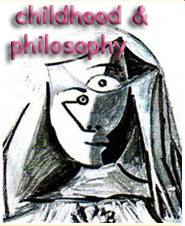learning as ‘worlding’: de-centring gert biesta’s ‘non-egological’ education
DOI:
https://doi.org/10.12957/childphilo.2017.29956Keywords:
biesta, posthuman educationAbstract
Philosopher of Education, Gert Biesta, presented at the 18th ICPIC conference in Madrid and published his paper in this same Special Issue. In this paper, I put these in the context of current transdisciplinary conversations in academia about posthuman subjectivity. By paying close attention to the self/world relationality implied in what Biesta proposes (a shift from ‘I’ before the world, to ‘I’ called into the world), I show how critical posthumanism produces a more radical ontological shift (‘I’ as part of the world), with implications for the subjectivity assumed in philosophy with children (P4C), and education more generally. By exposing the political (Western) nature of the ‘I’ as transcendental signifier and by including nonhuman bodies, I de-centre the ‘non-egological’ education proposed by Biesta. I conclude that learning does not take place in a subject (which Biesta is also concerned about), nor in between two or more human subjects and the world, but that it is a process of material-discursive world-making: a ‘worlding’ (Haraway, 2016). I illustrate my proposal for a worlding way of working in P4C through an example of the concept ‘pet’.




